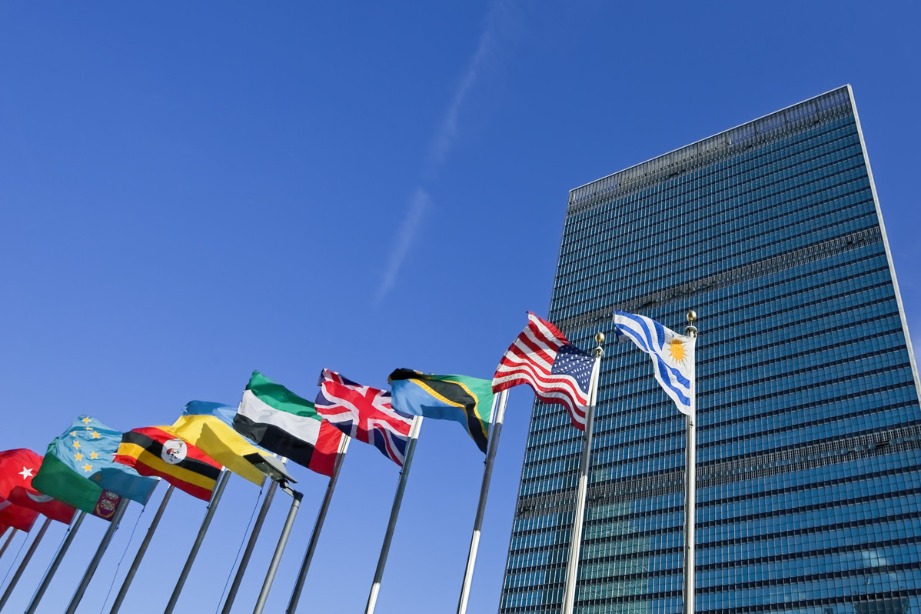Work in progress


Whether China and the US can act on the San Francisco Vision is a test for the political wisdom of both sides
President Xi Jinping spoke with United States President Joe Biden on the phone on April 2,during which the two presidents had a candid and in-depth exchange of views on China-US relations and issues of mutual interest.
Biden once again emphasized during the call that the US-China relationship is the most consequential bilateral relationship in the world, saying that the progress made in bilateral relations since the two leaders' meeting in San Francisco demonstrates that both sides can actively advance cooperation while responsibly managing differences.President Xi stressed that the issue of strategic perception is fundamental to the China-US relationship, like doing the first button of a shirt that must be done right.
Two major countries such as China and the United States should not cut off their ties or turn their back on each other, still less slide into conflict or confrontation. The two countries should respect each other, coexist in peace and pursue win-win cooperation. The relationship should continue moving forward in a stable, sound and sustainable way, rather than going backward. In the face of a severe and complex landscape and the potential shock on China-US relations brought by the campaigning in the US presidential election, ensuring regular and smooth high-level communication between both nations is an important way to stabilize and shore up the relationship.
The year 2024 marks the seventh year since the previous US administration described China as a "strategic competitor" in December 2017. It is also the last year of this presidential term. The US' pressure strategy toward China has taken shape, with China continuously responding effectively and calmly to the US pressure. After a tumultuous year, China-US relations have withstood various tests, reverting to a basic pattern in which both sides compete without breaking from the relationship, maintain dialogue to keep the peace, and pursue steady progress in ties. However, with the US presidential election approaching, it is inevitable that the Biden administration might adopt varying degrees of its strategic containment of China. The uncertainties arising from the intensification of strategic competition between China and the US should not be underestimated.
The Biden administration, facing the strategic challenges brought about by the protracted Russia-Ukraine crisis, global geopolitical turmoil and the downturn of the world economy, coupled with the reality that decoupling from China is unfeasible, has had to reassess its China policy, seeking a stable and manageable way of coexistence. From June to September 2023,high-ranking officials such as US Secretary of State Antony Blinken, Treasury Secretary Janet Yellen, then US special presidential envoy for climate John Kerry and Secretary of Commerce Gina Raimondo visited China. High-level meetings and regular dialogue mechanisms between Beijing and Washington were restarted. In November 2023,the two presidents met for a summit alongside the APEC Economic Leaders' Meeting in San Francisco. In late October, Foreign Minister Wang Yi visited the US and held talks with President Biden, Secretary Blinken and National Security Advisor Jake Sullivan. Wang pointed out that the path to San Francisco is not smooth and cannot be left to "autopilot". With joint efforts from both sides, on Nov 15, President Xi and President Biden met at the Filoli Estate in California. President Xi proposed five pillars for China-US relations: jointly developing a right perception, jointly managing disagreements effectively, jointly advancing mutually beneficial cooperation, jointly shouldering responsibilities as major countries and jointly promoting people-to-people exchanges. The two leaders agreed to enhance dialogue and cooperation in areas such as artificial intelligence, narcotics, the military and education.
However, it is unlikely for the US to make substantial changes to its strategic containment of China, which is based on the three policy elements of "competition, conflict, and cooperation". This is the inevitable outcome of the US continuing to uphold its hegemonic views on national interests and the international order. The Biden administration will continue to focus on the Asia-Pacific region as the cornerstone of its global security strategy, using the US alliance system to advance strategic competition and the containment of China. The US will also closely monitor China's growing influence in regions such as the Middle East, Europe, Latin America and Africa, seeking to suppress China's technological innovation and high-end manufacturing competitiveness to slow China's rise and widen the gap in power dynamics between China and the US. In response, China must continue to drive high-quality development through high-quality opening-up.Under the influence of the US presidential election this year, the anti-China forces in the US Congress, motivated by their narrow ideological views and personal political gains, will maintain their aggressive stance toward China. As the 2024 US presidential election process proceeds, anti-China sentiments, hostility toward China and China-skepticism will intensify. The Taiwan question remains the core and the most critical, and it is a significant flashpoint issue in China-US relations. Whether China and the United States can act on the San Francisco vision and meet with each other half way will be a test for the political wisdom of both sides.
For China, to properly handle the relationship with the US, the world's most consequential and most complex bilateral relations, and manage the strategic competition is a severe and acute strategic challenge the nation faces in the context of great changes. In the foreseeable future, the US will continue to be stronger than China in terms of overall strength, with Washington expected to be on the offensive and Beijing adopting a defensive stance.
Despite all the changes in Washington's China strategy, China should guide its actions with Xi Jinping Thought on Diplomacy, emphasizing mutual respect, peaceful coexistence, and win-win cooperation while firmly defending the bottom line of the country's national interests. China must handle complex incidents including "gray rhino" events prudently in its long-term engagement with the US.During his telephone conversation with President Biden on April 2, President Xi once again candidly made clear China's approach to managing relations with the US, and he underlined the three overarching principles that should guide China-US relations in 2024. First, peace must be valued. The two sides should put a floor of no conflict and no confrontation under the relationship, and keep reinforcing the positive outlook of the relationship. Second, stability must be prioritized. The two sides should refrain from setting the relationship back, provoking any incident or crossing a redline, so as to maintain the overall stability of the relationship. Third, credibility must be upheld. The two sides should honor their commitments to each other with actions, and turn the San Francisco vision into reality. Both nations need to strengthen dialogue in a mutually respectful way, manage differences prudently, advance cooperation in the spirit of mutual benefit, and step up coordination on international affairs in a responsible way.
This not only reiterates China's position to the US, but also embodies China's determination to shoulder the responsibilities as a major country on the basis of upholding the common interests of humanity.
The author is executive dean and a professor with the School of International Relations at Nanjing University. The author contributed this article to China Watch, a think tank powered by China Daily.
The views do not necessarily reflect those of China Daily.
Contact the editor at editor@chinawatch.cn.

































